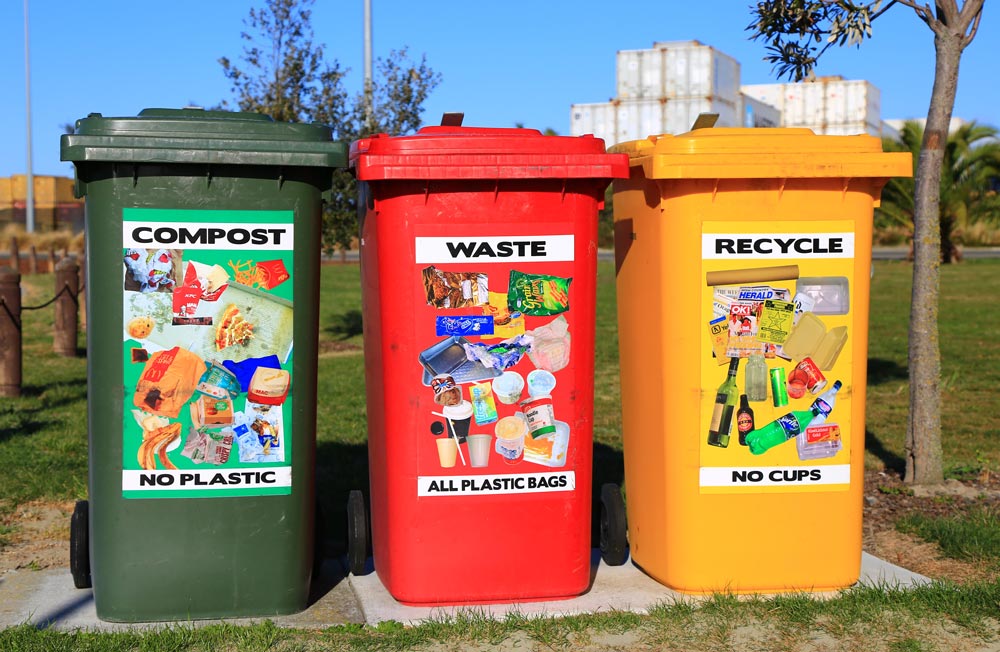Sustainable Event Planning: 13 Affordable Strategies for Greener Events
In recent years, the importance of sustainability has come to the forefront of event planning. As we become increasingly aware of our environmental impact, many event organizers are looking for ways to make their gatherings more eco-friendly without breaking the bank.
In this blog, we will explore easy and affordable strategies to make your event more sustainable and discuss why it's crucial to prioritize sustainability in event planning.

Why Sustainability Matters in Event Planning
Before diving into the practical strategies, it's essential to understand why sustainability matters in event planning:
-
Environmental Impact: Events can generate a significant amount of waste and consume resources like water and energy. By adopting sustainable practices, you can reduce the environmental footprint of your event.
-
Cost Savings: Sustainability often goes hand in hand with efficiency. Many sustainable practices can save you money in the long run, from reducing energy consumption to minimizing waste disposal costs.
-
Positive Brand Image: Embracing sustainability can enhance your event's reputation. People appreciate organizations and events that care about the environment, which can lead to increased attendance and support.
-
Legal and Ethical Considerations: In some regions, there are legal requirements for event sustainability, such as waste management regulations. Failing to comply with these laws can lead to fines and penalties.
Now, let's explore easy and affordable ways to make your event more sustainable.
Tip #1 Choose a Sustainable Venue
Select a venue that aligns with sustainability principles. Look for spaces with energy-efficient lighting, heating, and cooling systems. Outdoor venues can also be a sustainable choice as they require fewer resources to operate. Ensure the venue offers recycling and composting options.
- Research Sustainable Venues: Look for venues that have earned certifications like LEED (Leadership in Energy and Environmental Design) or are known for their commitment to eco-friendly practices.
- Energy Efficiency: Ask about their lighting, heating, and cooling systems. Venues that use LED lighting, programmable thermostats, and energy-efficient appliances are better choices.
- Transportation Accessibility: Assess the accessibility of the venue via public transportation, biking, or walking. Encourage your guests to use sustainable transportation options, which can reduce the carbon footprint of your event.
- Water Conservation: Venues with low-flow toilets, water-efficient landscaping, and water-saving fixtures can significantly reduce water consumption.
Tip #2 Promote Public Transportation
Encourage attendees to use public transportation or carpool to the event. Provide information about nearby bus or subway stops, and offer incentives like discounts for those who use eco-friendly transport options.
Tip #3 Minimize Paper Usage
Reduce paper waste by adopting digital alternatives for invitations, programs, and tickets. Utilize event management apps and email communication to disseminate information to attendees. If you must use paper, opt for recycled and biodegradable options.
- Digital Invitations: Instead of traditional paper invitations, consider sending digital invitations via email or using event management apps. This not only saves paper but also provides a convenient and quick way to reach your target audience.
- Digital Programs: Instead of printing physical programs, design digital event programs that attendees can access through the event app or website. Digital programs can include interactive elements such as clickable links, videos, and live polls, enhancing the overall experience for attendees.
- E-Tickets and QR Codes: Implement e-ticketing systems that generate electronic tickets with QR codes. Attendees can easily access their tickets on their mobile devices, reducing the need for printed tickets. QR codes can also be scanned at the event entrance for a hassle-free check-in process.
- Recycled and Biodegradable Options: If you must use paper for specific purposes, opt for recycled and biodegradable options. Choose sustainably sourced paper and printing methods that minimize environmental impact. Clearly communicate the importance of responsible paper usage to attendees, encouraging them to recycle any paper materials they receive at the event.
- Digital Marketing and Communication: Promote your event primarily through digital marketing channels, such as social media, email newsletters, and your school's website. These platforms provide a cost-effective and environmentally friendly way to reach your audience while reducing the need for printed promotional materials.

Tip #4 Use Sustainable Decor
Choose sustainable decor options such as potted plants, reusable banners, and natural materials. Avoid single-use decorations that end up in landfills. After the event, donate or recycle decor items whenever possible.
Tip #5 Opt for Eco-Friendly Catering:
Work with caterers who prioritize sustainability. Request locally sourced, organic, and seasonal menu options. Minimize food waste by accurately estimating portions and donating excess food to local charities. When looking for an eco-friendly catering company, check the following:
- Local and Organic Ingredients: Prioritize caterers who use locally sourced, organic, and seasonal ingredients in their menus. Locally sourced ingredients require less transportation, reducing the carbon footprint of your event. Organic and seasonal options often align with sustainable agricultural practices and can be fresher and more flavorful.
- Customizable Menus: Discuss the specific dishes and ingredients you'd like to include and ensure they are sourced in an eco-friendly manner. Customizable menus allow you to tailor the food choices to your event's theme and dietary preferences.
- Portion Control: Opt for a buffet-style or family-style service that allows guests to serve themselves, reducing the risk of excess food being prepared.
- Food Waste Mitigation: Discuss food waste management with the caterer. Inquire about their strategies for minimizing food waste during preparation and service. Ask if they have a plan in place to donate excess food to local charities or food banks, ensuring that any surplus food does not go to waste.
- Zero-Waste Practices: Minimize the use of single-use plastics and disposable items. Provide clearly labeled recycling and composting bins to facilitate proper disposal.
- Beverage Selection: Opt for locally brewed beers, wines, and spirits to reduce transportation-related emissions. Serve water in pitchers or provide water stations to avoid single-use plastic bottles.
- Energy-Efficient Cooking and Service: Inquire about the caterer's kitchen and cooking equipment. Modern, energy-efficient appliances and cooking methods can help reduce energy consumption during food preparation. Similarly, ask about their transportation practices, such as using fuel-efficient vehicles for delivery.
Tip #6 Implement Waste Reduction Strategies
Set up clearly labeled recycling and composting stations throughout the event space. Educate attendees about what can be recycled or composted and what should go in the trash. Consider using reusable tableware and utensils instead of disposable items.
Tip #7 Sustainable Swag Bags or Merch
If you provide swag bags for attendees, choose items that are eco-friendly and useful. Avoid cheap trinkets that often end up discarded. Options like reusable water bottles, tote bags, or bamboo utensils are more sustainable choices.

Tip #8 Energy-Efficient Lighting
Use LED or CFL lighting options, which consume less energy and have a longer lifespan compared to traditional incandescent bulbs. Consider using natural light during the day to reduce the need for artificial lighting.
Tip #9 Offset Carbon Emissions
Calculate the event's carbon footprint and invest in carbon offset programs or renewable energy credits to counterbalance your emissions. This shows a commitment to environmental responsibility. Here are some ways to offset carbon emissions:
Renewable Energy Credits (RECs): Consider purchasing Renewable Energy Credits, also known as RECs or green energy certificates. RECs represent the environmental attributes of electricity generated from renewable sources such as wind, solar, or hydropower. By buying RECs equivalent to the energy consumed during your event, you support the production of clean, renewable energy and reduce the reliance on fossil fuels.
Educate Attendees: Inform event attendees about your carbon offset efforts and the importance of environmental responsibility. Share details about the specific projects or initiatives your event is supporting and how it contributes to a more sustainable future. Encourage attendees to learn more about carbon offsetting and consider making their own commitments to reduce their carbon footprint.
Transparency and Reporting: Be transparent about your carbon offset efforts by publishing a sustainability report or statement. Provide details on the calculations, investments made, and the impact achieved through your carbon offset initiatives. Transparency builds trust with attendees and showcases your dedication to sustainability.
Tip #10 Encourage Recycling at Events
Promoting recycling at events is an essential step in reducing waste, conserving resources, and contributing to a more sustainable environment. By implementing effective recycling strategies, you can minimize the environmental impact of your event while setting a positive example for attendees.
Here are key strategies to encourage recycling at your events:
- Designated Recycling Stations: These stations should be easily accessible and strategically placed to capture recyclable materials such as paper, plastic, glass, and aluminum.
- Educational Signage: Use informative and visually appealing signage to educate attendees about the importance of recycling and what items can be recycled.
- Volunteer Recycling Ambassadors: These individuals can assist attendees in properly disposing of recyclables, answer questions, and ensure that recycling stations are well-maintained throughout the event.
- Zero-Waste Goals: Zero-waste events aim to divert as much waste as possible from landfills by recycling, composting, and reducing waste generation.
- Collaborate with Vendors: Work closely with event vendors and caterers to ensure they use sustainable packaging and materials that are easily recyclable or compostable.
- Incentive Programs: Consider implementing a reward system, such as offering discounts, prizes, or entry into a raffle for those who actively participate in recycling efforts.
- Sustainable Souvenirs: If your event provides souvenirs or promotional materials, choose sustainable options such as reusable bags, water bottles, or eco-friendly merchandise that aligns with your recycling and sustainability efforts.
- Post-Event Reporting: Highlight the amount of waste diverted from landfills and the positive environmental impact achieved through recycling efforts. Transparency and accountability reinforce the importance of recycling.

Tip #11 Water Conservation
Promote water conservation by using water-efficient fixtures in restrooms and providing water refill stations instead of single-use plastic bottles. Encourage attendees to bring their reusable water bottles.
Tip #12 Sustainable Transportation
Consider offering bike racks or shuttle services for attendees. If your event spans multiple days, encourage participants to stay in eco-friendly accommodations within walking distance.
- Bike Racks and Rentals: Consider partnering with local bike rental companies to provide easy access to bicycles for those who don't have their own.
- Shuttle Services: Shuttles can transport attendees to and from the event venue, nearby parking areas, or public transportation hubs, reducing the need for individual car travel.
- Public Transportation Promotions: Promote the use of buses, trams, subways, or commuter trains as convenient and eco-friendly alternatives to driving.
- Carpooling and Ridesharing: Encourage attendees to carpool or use ridesharing apps to share rides with others traveling to the event. Implement a carpool matching system on your event website or app to facilitate connections among attendees looking for shared transportation options.
- Walking Paths and Pedestrian-Friendly Routes: Ensure that the event venue is easily accessible by foot and provides well-marked walking paths or pedestrian-friendly routes. Promote walking as a sustainable and healthy means of transportation, especially if the venue is located near accommodations.
- Electric Vehicle (EV) Charging Stations: If feasible, install EV charging stations at or near the event venue to accommodate attendees with electric or hybrid vehicles.
- Valet Bike Parking: Offer valet bike parking services at the event venue. This not only provides a secure place for attendees to store their bikes but also promotes cycling as a convenient and green transportation choice.
Tip #13 Community Engagement
Engage with the local community by involving nearby businesses, vendors, and organizations that share your sustainability goals. Collaboration can lead to shared resources and a positive impact.
Conclusion: A Sustainable Future for Event Planning
By adopting these easy and affordable sustainability strategies, event planners can make a significant difference in reducing their events' environmental impact and promoting eco-consciousness among attendees. Sustainability isn't just a trend; it's a responsibility that benefits the planet, your bottom line, and your event's reputation.
Remember, small steps can lead to big changes. As you implement these sustainable practices in your events, you contribute to a more sustainable future, one event at a time. So, make a commitment to sustainable event planning and be part of the solution to create greener, more eco-friendly gatherings for years to come.






